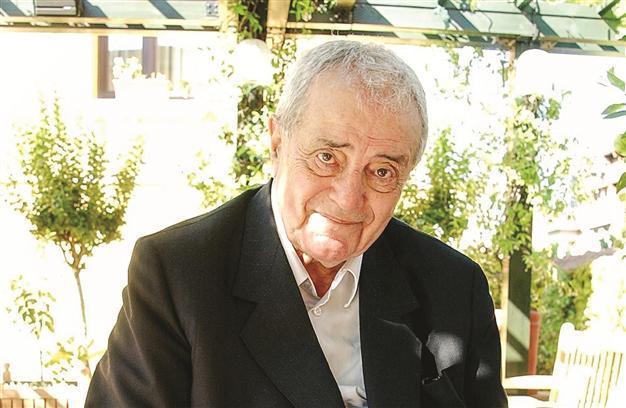Turkey loses a veteran of its cinema history, Metin Erksan
ISTANBUL - Hürriyet Daily News

Director Metin Erksan, one of the veteran filmmakers in Turkish cinema, has died of renal failure at age 83. Hürriyet photo
One of the greatest filmmakers in Turkish cinema, prominent director Metin Erksan, died Aug. 4 at Istanbul’s MedicalPark Hospital, where he had been receiving treatment for renal failure for the previous 10 days. He was 83. His funeral ceremony will be held today.Erksan was the director of “Susuz Yaz” (Dry Summer), a 1964 black-and-white film that won Turkey’s first international cinema awards. The film, which adapted from a short novel by Necati Cumalı, won the Golden Bear at the 14th Berlin International Film Festival and the Biennale Award at the 29th Venice Film Festival. The film was also selected as the Turkish entry for “Best Foreign Language Film” at the 37th Academy Awards.
Featuring late actor Erol Taş as a tobacco farmer who selfishly dams a river to irrigate his own property and ruin his competitors, the film is also available in an English-dubbed U.S. theatrical release version titled “Reflections,” produced by William Shelton and directed by David E. Durston.
“Metin Erksan, who has made contributions to the development of Turkish cinema and its introduction to the world, and also won many important awards in Turkey and abroad, will be remembered with love and respect for his unforgettable films,” President Abdullah Gül said in a written statement.
Erksan was one of the veteran names of Turkish cinema, and his works are a source of pride for the country, said Culture and Tourism Minister Ertuğrul Günay.
He makes debut in 1950
Born in 1929 in the northwestern province of Çanakkale, Erksan graduated from the art history department of Istanbul University in 1952.
His film debut was as the scriptwriter for “Binnaz” in 1950, which was shot for the Atlas Film Production Company. He also worked as a columnist in papers and film periodicals before engaging in active filmmaking. During his professional career, Erksan directed 42 films, two of which he produced himself, and he wrote scripts for 29 films. He also starred in the 1998 film “Alim Hoca” as the title character.
His first film as a director was “Aşık Veysel’in Hayatı” (1952), which tells the dramatic life story of the famous blind poet and song writer Aşık Veysel. The film was the first film prohibited by the
censorship committee for showing the Turkish land as “infertile” in one of its scenes.
Regarded as one of the three major representatives of Turkish cinema, Erksan created his own style with his unforgettable films such as “Susuz Yaz,” “Suçlular Aramızda” (The Guilty Ones Are Among Us), “Sevmek Zamanı” (Time to Love), “Kuyu” (Well), “Acı Hayat” (Bitter Life) and “Şoför Nebahat” (Nebahat the Driver). Another well known film Erskan made was “Yılanların Öcü” (Revenge of the Snakes), a 1962 realist drama based on a novel by Fakir Baykurt. The film deals with the issue of an unwanted pregnancy in a small farming village, addressing numerous moral and social
issues. The film was remade in 1985.
After shooting serials for Turkish Radio and Television (TRT) in the 70s, Erksan completely left filmmaking after 1983 and started teaching at Istanbul’s Mimar Sinan University. He received the title of honorary professor in 1997.
Besides his international awards, among other awards Erksan won were the award for best script for “Gecelerin Ötesi” (Beyond Nights) at the Competition of Turkish Films in 1961, the best director award for “Suçlular Aramızda” in 1965 at the first İzmir International Film Festival, awards for best directing and best film for “Kuyu” at the first Adana Golden Cocoon Film Festival in 1969, and an honorary awards at the 24th Antalya Film Festival in 1987.
















